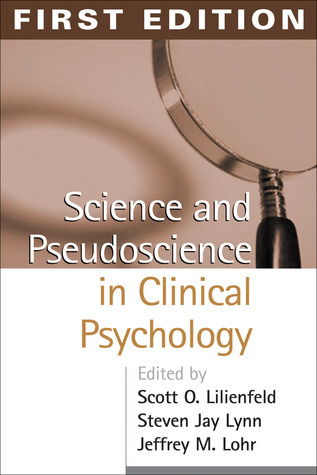What do you think?
Rate this book


474 pages, Paperback
First published January 1, 2002
"In such a culture, pseudoscience is particularly attractive because pseudoscience by definition promises certainty, whereas science gives us probability and doubt. Pseudoscience is popular because it confirms what we believe; science is unpopular because it makes us question what we believe."
We must remain open to novel and untested claims, regardless of how superficially implausible they might appear at first blush. At the same time, we must subject these claims to incisive scrutiny to ensure that they withstand the crucible of rigorous scientific testing.